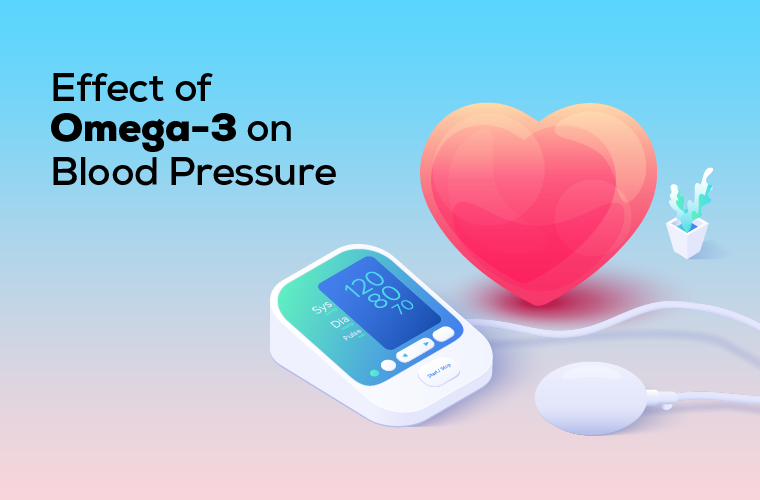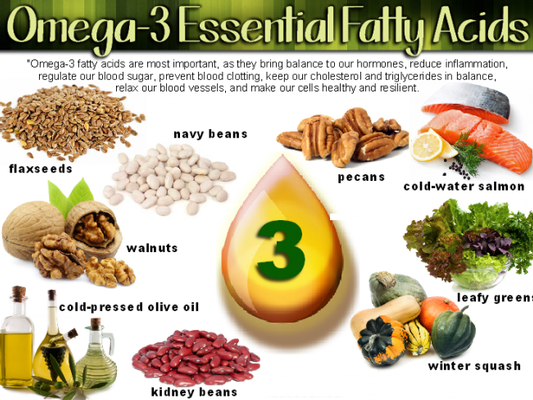

Omega- for blood pressure -
Cardiology Month in Review: January Home-Based Albuminuria Screening Cost-Effective for Preventing Kidney, Cardiovascular Events. News Media Medical World News Podcasts Shows State Of Sciences - Presentations Videos Webinars. Conferences Conference Coverage Conference Listing.
Resources Interactive Tools Live Events Press Release Publications Sponsored. Choose Specialty Allergy Allergy Allergy Allergy. Cardiology Cardiology Cardiology Cardiology Cardiology Cardiology Cardiology Cardiology Cardiology Cardiology. Dermatology Dermatology Dermatology Dermatology Dermatology Dermatology Dermatology.
Endocrinology Endocrinology Endocrinology Endocrinology Endocrinology Endocrinology. FDA News. Family Medicine Family Medicine Family Medicine Family Medicine.
Gastroenterology Gastroenterology Gastroenterology Gastroenterology Gastroenterology Gastroenterology Gastroenterology.
Geriatrics Geriatrics Geriatrics. Hematology Hematology Hematology. Hepatology Hepatology. Hospital Medicine. Infectious Disease Infectious Disease. Internal Medicine. Nephrology Nephrology Nephrology. Neurology Neurology Neurology Neurology Neurology.
Bleeding gums and nosebleeds are two of the hallmark side effects of excess fish oil consumption. One study in 56 people found that supplementing with mg of fish oil per day over a four-week period decreased blood clotting in healthy adults 6.
Summary Taking large amounts of fish oil can inhibit blood clot formation, which may increase the risk of bleeding and cause symptoms such as nosebleeds or bleeding gums.
One study of 90 people on dialysis found that taking 3 grams of omega-3 fatty acids per day significantly decreased both systolic and diastolic blood pressure compared to a placebo 8. Similarly, an analysis of 31 studies concluded that taking fish oil can effectively lower blood pressure, especially for those with high blood pressure or high cholesterol levels 9.
While these effects can certainly be beneficial for those with high blood pressure, it can cause serious problems for those who have low blood pressure. Summary Omega-3 fatty acids have been shown to lower blood pressure, which may interfere with certain medications and cause problems for those with low blood pressure.
Diarrhea is one of the most common side effects associated with taking fish oil, and may be especially prevalent while taking high doses. In fact, one review reported that diarrhea is one of the most common adverse effects of fish oil, alongside other digestive symptoms such as flatulence In addition to fish oil, other types of omega-3 supplements may also cause diarrhea.
Flaxseed oil, for example, is a popular vegetarian alternative to fish oil, but has been shown to have a laxative effect and may increase bowel movement frequency Summary Diarrhea is a side effect of omega-3 fatty acid supplements such as fish oil and flaxseed oil.
Although fish oil is known for its powerful effects on heart health, many people report feeling heartburn after starting to take fish oil supplements Other acid reflux symptoms — including belching, nausea and stomach discomfort — are common side effects of fish oil due largely to its high fat content.
Fat has been shown to trigger indigestion in several studies 13 , Sticking to a moderate dose and taking supplements with meals can often effectively reduce acid reflux and relieve symptoms.
Additionally, splitting your dose into a few smaller portions throughout the day may help eliminate indigestion. Summary Fish oil is high in fat and may cause acid reflux symptoms such as belching, nausea, indigestion and heartburn in some people.
Hemorrhagic stroke is a condition characterized by bleeding in the brain, usually caused by the rupture of weakened blood vessels. These findings are also consistent with other research showing that fish oil could inhibit blood clot formation However, other studies have turned up mixed results, reporting that there is no association between fish and fish oil intake and hemorrhagic stroke risk 18 , Further human studies should be conducted to determine how omega-3 fatty acids may impact the risk of hemorrhagic stroke.
Summary Some animal studies have found that a high intake of omega-3 fatty acids could increase the risk of hemorrhagic stroke while other human studies have found no association. Certain types of omega-3 fatty acid supplements are high in vitamin A, which can be toxic if consumed in large amounts.
Vitamin A toxicity can cause side effects such as dizziness, nausea, joint pain and skin irritation Long term, it could also lead to liver damage and even liver failure in severe cases Summary Certain types of omega-3 fatty acid supplements, such as cod liver oil, are high in vitamin A, which can be toxic in large amounts.
One study of children, for instance, showed that taking mg of omega-3 fatty acids daily for 16 weeks helped improve sleep quality In some cases, though, taking too much fish oil may actually interfere with sleep and contribute to insomnia.
In one case study, it was reported that taking a high dose of fish oil worsened symptoms of insomnia and anxiety for a patient with a history of depression More research is needed to understand how large doses may affect sleep quality in the general population. Endothelial dysfunction is linked to plaque build-up in your arteries atherosclerosis , a condition that can lead to heart attacks and stroke.
In preliminary research on animals, scientists have observed that fish oil may help improve endothelial function and improve the elasticity of your arteries. Some research suggests that omega-3 fatty acids from fish oil supplements may aid in blood pressure control.
In a research review published in the American Journal of Hypertension in , for instance, investigators sized up 70 previously published clinical trials examining the effects of the omega-3 fatty acids EPA and DHA from seafood, fortified foods, or supplements on people with or without high blood pressure.
The researchers found that the average systolic blood pressure the top number in a blood pressure reading decreased by 4. Diastolic blood pressure the bottom number in a blood pressure reading decreased by an average of 3. In their analysis, the researchers found that among all people who took omega-3 fatty acids through supplements like fish oil, systolic blood pressure decreased by 1.
Fish oil is likely safe for many people when taken in doses of three or fewer grams per day, according to the National Institutes of Health NIH.
The NIH cautions that taking more than 3 grams of fish oil daily DHA and EPA combined may inhibit blood clotting and increase the risk of bleeding.
Fish oil should be used cautiously and only with supervision by a qualified healthcare professional or avoided by people who bruise easily, have a bleeding disorder, or take certain medications or supplements that increase the risk of bleeding, such as warfarin, clopidogrel, aspirin, NSAIDs such as ibuprofen , garlic, vitamin E, and the herb ginkgo biloba.
It shouldn't be taken within two weeks of a scheduled surgery. Use of fish oil may trigger a number of side effects, including bad breath , heartburn , and nausea. What's more, high doses of fish oil have shown both positive and negative influences on aspects of immune system function.
Keep in mind that supplements haven't been tested for safety and due to the fact that dietary supplements are largely unregulated, the content of some products may differ from what is specified on the product label.
Two of the main concerns with fish oil are that the oil may be rancid or contain environmental contaminants found in fish such as PCBs polychlorinated biphenyls and mercury. Also, the safety of supplements in pregnant women, nursing mothers, children, and those with medical conditions or who are taking medications has not been established.
Adopting healthy lifestyle practices such as exercising regularly, watching your salt intake, cutting back on alcohol consumption, avoiding smoking, and watching your weight may help you manage your blood pressure.
Adding omega-3 fatty acids from oily fish like salmon, anchovy, and sardines to your diet may also help. According to the NIH, a 3. Keep in mind that some types of fish may contain high levels of mercury, PCBs, dioxins, and other environmental contaminants and that regular consumption of these fish may increase your body's levels of these contaminants.
In addition to possibly lowering blood pressure, fish oil may help enhance heart health by fighting heart disease , protecting against hardening of the arteries, and lowering cholesterol levels. If you are considering taking fish oil supplements, be sure to speak with your healthcare provider first to see if it's appropriate and safe for you.
Some medications and supplements commonly taken for high blood pressure such as warfarin, aspirin, garlic, or gingko may interact with fish oil. Dinicolantonio J, Okeefe J. Dietary fats, blood pressure and artery health.
Mayo Clinic Oega- appointments in Arizona, Florida and Omega- for blood pressure and at Mayo Clinic Health System locations. Fish bloor is a dietary Enhancing detoxification processes of Omfga- fatty Intensive lice treatment. Your body needs omega-3 pressurs acids for many functions, from muscle activity to cell growth. Omega-3 fatty acids are derived from food. They can't be manufactured in the body. Fish oil contains two omega-3s called docosahexaenoic acid DHA and eicosapentaenoic acid EPA. Dietary sources of DHA and EPA are fatty fish, such as salmon, mackerel and trout, and shellfish, such as mussels, oysters and crabs. Background: In a fod of lbood placebo-controlled trials on Prressure, we examined the effect of omega-3 fatty acids in Omega- for blood pressure fog on Intensive lice treatment pressure Omega- for blood pressure grouping studies that were pfessure in fish Presssure dose, length Boosts natural gut immunity treatment, health of the subjects, or study design. Methods and results: The mean reduction in blood pressure caused by fish oil for the 31 studies was There was a statistically significant dose-response effect when studies were grouped by omega-3 fatty acid dose: Both eicosapentaenoic acid and docosahexaenoic acid were significantly related to blood pressure response. There was no effect on blood pressure in eight studies of "healthy" persons mean reduction, By contrast, there was a significant effect of
Ist Einverstanden, die bemerkenswerte Mitteilung
Ich entschuldige mich, aber meiner Meinung nach lassen Sie den Fehler zu. Schreiben Sie mir in PM.
Ich kann anbieten, auf die Webseite vorbeizukommen, auf der viele Artikel in dieser Frage gibt.
Bemerkenswert, die wertvollen Informationen